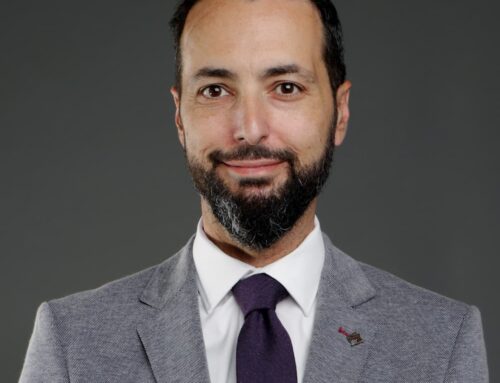Paul Tuns:

Phil Gurski, president and CEO of Borealis Threat and Risk Consulting
In its annual report to the House of Commons, the Canadian Security Intelligence Service (CSIS) listed the “anti-gender movement” as a an “Ideologically Motivated Violent Extremism” movement (IMVE) which poses “a significant risk to Canada’s national security risk.”
On May 7, CSIS tabled its annual report to the House of Commons, in which it stated that Canadians opposed to gender ideology being promoted throughout society from schools to public libraries form an “anti-gender movement” which could pose a “violent threat” in the immediate future.
CSIS defines IMVE as a threat that is “complex, constantly evolving, and fueled by entities (individuals, cells, groups, or networks) driven by a range of influences rather than a singular belief system,” singling out “extreme racist, anti-gender and identity, and anti-authority views.” CSIS says that when these influences “combine with personal grievances” it “can result in an individual’s willingness to incite, enable or mobilize to violence.”
In 2023, CSIS identified a single incident of gender ideology-based violence. On June 28, 2023, Geovanny Villalba-Aleman, an immigrant and recent University of Waterloo graduate, entered a university gender studies classroom and stabbed a professor and two students. He was charged with 11 offenses including attempted murder and aggravated assault, and in August, the crown attorney’s office announced it would prosecute Villalba-Aleman as a terrorist. CSIS said that the accused assailant “held various ideological grievances” his “primary motivation was likely his anti-gender views.”
The report states the agency “assesses that the violent threat posed by the anti-gender movement is almost certain to continue over the coming year and that violent actors may be inspired by the University of Waterloo attack to carry out their own extreme violence against the 2SLGBTQIA+ community or against other targets they view as representing the gender ideology agenda.” The report states, “the ecosystem of violent rhetoric within the anti-gender movement, compounded with other extreme worldviews, can lead to serious violence,” but offers no examples of the “ecosystem” in question. It asserts that “anti-gender rhetoric” could “inspire and encourage serious violence against the 2SLGBTQIA+ community, or against those who are viewed as supporters of pro-gender ideology policies and events.”
CSIS says opponents of gender ideology are opposed “to the socio-cultural shifts that are represented by the integration and acceptance of gender theory, including acceptance of the 2SLGBTQIA+ community.” It speculates that “Individuals may become engaged with the movement for many reasons, including beliefs stemming from misogyny, homophobia, transphobia, religious interpretations, conspiracy theories, or a generalized fear of sociocultural change.”
CSIS says that the “movement may collectively hold extreme views” but “only a small portion of adherents are willing to engage in serious violence.”
The report differentiates between Politically Motivated Violent Extremism (PMVE) and Religiously Motivated Violent Extremism (RMVE), defining the latter as encouraging “the use of violence as part of a spiritual struggle against a perceived immoral system.” The RMVE identified by CSIS was comprised solely of Islamist extremists. But the report does state that anti-LGBTQ “rhetoric is spreading widely through social media and online forums among domestic RMVE adherents, increasing the risk of extremist violence against these communities, and placing youth vulnerable to RMVE propaganda at a higher risk of becoming radicalized on online platforms.” It is not clear from which faith group or groups the RMVE threat to gender ideology originates as CSIS provides no examples.
The Epoch Times reports that Phil Gurski, who worked for CSIS for three decades and is now president and CEO of Borealis Threat and Risk Consulting, said, “It really makes me wonder if someone’s dictating to the service, ‘we want you to highlight this stuff,’ which I don’t think historically we used to do.” The source said “there’s an agenda being set here.”
Jeff Gunnarson, national president of Campaign Life Coalition, told The Interim, “there is definitely an agenda being set to identify opponents of Justin Trudeau’s woke policies and radical gender ideology,” to either “vilify them in public opinion or target through lawfare.” Gunnarson said that while CSIS identifies all opposition to gender ideology as “extreme” if not violent, it is the “reality-bending gender ideology that claims ‘female is male and male is female’ that is extreme.”
Stephanie Carvin, a former CSIS analyst from 2012-2015 and now associate professor of international affairs at Carleton University, told the Toronto Star, “it’s positive that we now understand that not all violence comes from just al-Qaeda inspired narratives,” but “from a range of threat actors, even if we just haven’t traditionally considered it as such.”
Carvin said, “I think if they’re leading with this (anti-gender ideology), it means that’s the thing they’re almost certainly most concerned about in this space.” In fact, the chapter of “Violent Extremism” is covered on pages 44-48 in an 80-page report.
Amarnath Amarasingam, an assistant professor in the School of Religion at Queens University and a self-described “extremism expert,” told the Star, he has noticed “a stark rise in groups and individuals pushing back against policies and educational programs that promote gender equality, the acceptance of transgender rights, or even the broader concept of gender as a social and cultural construct.” He said the extremist elements of that movement includes “religious conservatives to misogynists to right wing actors” and he blamed the political rhetoric of some politicians for fanning the flames of such supposed extremism.
Gurski said CSIS is using resources to monitor domestic political activity that are then not available to combat foreign interference and Islamic extremism. “You can’t be all things to all people,” he told the Epoch Times, “and if the government’s trying to push this agenda that this is the number one threat, then it has serious consequences for investigative resources, which means you’re going to start overlooking things.”




